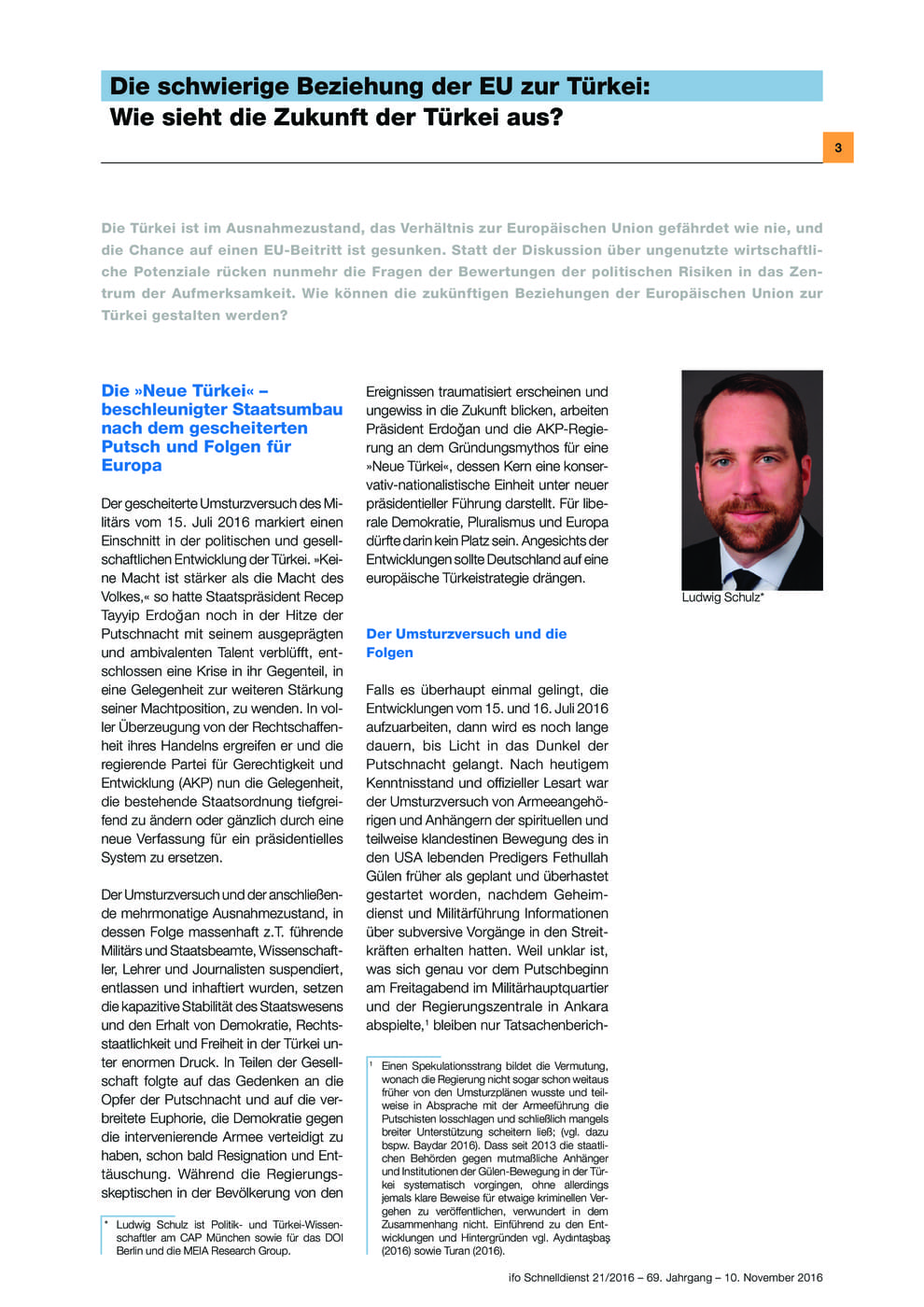The EU’s Difficult Relation to Turkey: How Does Turkey’s Future Look?
ifo Institut, München, 2016
ifo Schnelldienst, 2016, 69, Nr. 21, 03-25

Turkey is in a state of emergency, its relationship with the EU is more threatened than ever before and its hopes of joining the EU are fading fast. However, instead of focusing on how to harness Turkey’s untapped economic potential, the debate is increasingly dominated by assessments of political risks. For Ludwig Schulz, Centrum für angewandte Politikforschung (C•A•P), University of Munich, the failed coup of 15 July 2016 marks a turning point in Turkey’s political and social development. President Erdoğan and the AKP are working on a “New Turkey”, with a conservative-nationalist unit at its core under new presidential leadership. There will be no place for liberal democracy, pluralism and Europe. To date there is a lack of any convincing response from Germany and the EU. Helge Tolksdorf, German Federal Minister for Economic Affairs and Energy, sees the Turkish economy at a crossroads. Although the economic success of Turkey in recent years is undoubtedly a success story, its economic model based on foreign credit and domestic demand can only continue to prevail if confidence in political and economic framework conditions in Turkey is restored. Ayşe Yüreklí, TÜSIAD and TCCI, argue for a critical discussion of the “Turkey question.” If European policy continues to fail with regard to Turkey, this country will indeed carry on changing in a disquieting way. Turkey’s accession to the EU would significantly increase the heterogeneity of the EU, but this would not necessarily be negative. Erdal Yalcin, Ifo Institute, discusses the negative impact of TTIP on Turkey, should the agreement be finalised. The long-term forecast loss for Turkey would total up to 2% of GDP. A key reason for this loss is institutional weaknesses in the organisation of the European customs union with Turkey. A feasible way of offsetting these differences would be to further deepen the customs union. Galina Kolev, Institut der deutschen Wirtschaft Köln, points out that despite the progress made in Turkey’s economic position to date remains relatively fragile, since the Turkish economic remains characterised by fundamental imbalances. Its balance-of-payments deficit, which remains high, and the dependency on foreign capital underpinning it, represents a challenge to the country’s long-term development. To safeguard Turkey’s long-term attractiveness for international investors, the government needs to continue its reform efforts, reinforce incentives for innovation and research and restore stability and confidence in Turkey’s institutional framework conditions.